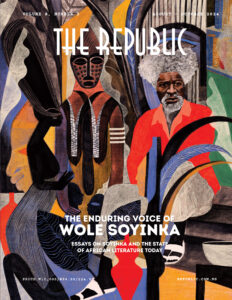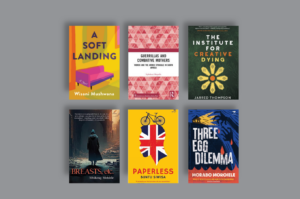
Six major US publishers have taken up the fight against repressive Iowa law – Senate File 496 – which bans books containing “sex acts” in school libraries and classrooms. US laws affect the African book market immensely because these major publishers are the ones promoting and publishing African literature, giving African authors a voice.
Iowa Senate File 496 was enacted in May 2023 and prohibits books containing “sex act” descriptions or depictions. Books falling into this category have been banned from Iowa school and classroom libraries, all the way till the 12th grade. The law also bans books relating to gender identity or sexual orientation from school and classroom libraries from students till the 6th grade.
This kind of unconstitutional law cannot go uncontested. A lawsuit was filed initially by Penguin Random House, the Iowa State Education Association (ISEA), and four renowned authors (Laurie Halse Anderson, John Green, Malinda Lo, and Jodi Picoult), alongside a group of teachers and students.
Five major publishers have joined the lawsuit against the State of Iowa and the book-banning provisions of SF 496. These include Hachette Book Group, HarperCollins Publishers, Macmillan Publishers, Simon & Schuster, and Sourcebooks. The publishers remarked in a joint statement that this law is quite alarming:
We as publishers are uniting in our unwavering commitment to stand with educators, librarians, students, authors, and readers against the unconstitutional censorship measures being imposed by the state of Iowa. The alarming rise of book bans across the country demands our collective action. Now, more than ever, we must stand firmly with our authors and readers to defend the fundamental right to read and the freedom of expression.
This is a historic challenge to the fundamental right to read and a threat to African literary publishing. Books banned from libraries include renowned African American texts such as Toni Morrison’s Beloved, Song of Solomon, and The Bluest Eye, along with Richard Wright’s Native Son, among others.
Unfortunately, the US is one of African literature’s biggest book markets and these will undoubtedly affect African authors as well, along with what gets published in the future. It is important to take notice of this law in the context of many other similar laws getting passed in the US and what that means for African literature.
Penguin Random House remarked on Instagram that they are committed to protecting the right to read:
“As the publisher of hundreds of authors with banned or challenged books, including plaintiffs in this lawsuit, we are committed to protecting the Constitutional right to read. We stand by our authors, their books, and the teachers, librarians and parents who champion free expression.”
We hope that the lawsuit is successful and this oppressive Iowa law gets overturned. Students should have the freedom to explore questions around sex, gender identity, and sexual orientation, and books are an important way to gain information and explore one’s own identities around these topics.









COMMENTS -
Reader Interactions